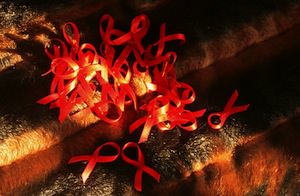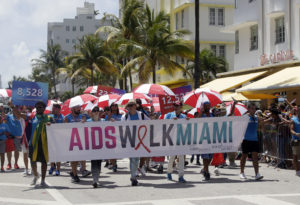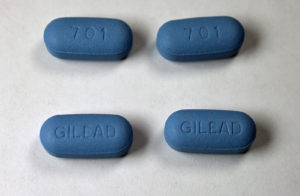AIDS Conference Excludes Many of Those Most Affected
The International AIDS Conference returned to the United States this week after a 22-year hiatus, thanks in part to President Obama’s lifting of a 1987 ban on entry into the country by people with HIV or AIDS. But sex workers and drug users, two groups most affected by the epidemic, remain shut out.
The International AIDS Conference returned to the United States this week after a 22-year hiatus, thanks in part to President Obama’s lifting of a 1987 ban on entry into the country by people with HIV or AIDS. But sex workers and drug users, two groups most affected by the epidemic, remain shut out.
Melissa Gira Grant on The Nation’s website points out the contradiction in holding a meeting attended by 20,000 people aimed at addressing an international health crisis while excluding those most impacted.
Among those in attendance are drug manufacturers, doctors, rich philanthropists and high-level officials. The emphasis on them will make “all the talk of new drugs, new funding and new policy … disconnected from the experience of those living with HIV/AIDS,” Grant writes.
The criminalization of those who sell sex and use drugs, behavior that is often undertaken in response to a deteriorating society, invites another paradox. Discussions about the disease at the highest levels of society among people who are least likely to be affected by it is one thing. Addressing the underlying, economically shaped social ills that perpetuate the epidemic with policies aimed at ameliorating those circumstances is quite another.
— Posted by Alexander Reed Kelly.
Melissa Gira Grant at The Nation:
… Violence, poverty and discrimination make people vulnerable to HIV, and also contribute to their marginalization within the AIDS prevention community itself, where they must fight not just the epidemic but for a place at the table. Phil Wilson, president of the Black AIDS Institute, speaking before a small gathering in the Global Village after his opening plenary, said it’s not enough, for example, for those conducting clinical trials to appeal to African-Americans to join them. “We need our people involved in doing the research, in reviewing the grants, in writing about these issues in the media.”
Where is the space for that community leadership to be recognized? Not on the main stages of the conference, where “vulnerable populations” may be mentioned, but not honored. The rote repetition—listing off “sex workers, drug users, men who have sex with men” and sometimes, though rarely, “transgender people,” as if ticking check-boxes on a Centers for Disease Control form—becomes tokenizing, even numbing, when not matched with a commitment to making space for these groups to shape the AIDS agenda. There is an enormous difference between being spoken of as someone to be protected from the epidemic, and being given equal space as a leader who is essential to ending the epidemic.
“Democracy Now!”:
Your support matters…Independent journalism is under threat and overshadowed by heavily funded mainstream media.
You can help level the playing field. Become a member.
Your tax-deductible contribution keeps us digging beneath the headlines to give you thought-provoking, investigative reporting and analysis that unearths what's really happening- without compromise.
Give today to support our courageous, independent journalists.





You need to be a supporter to comment.
There are currently no responses to this article.
Be the first to respond.